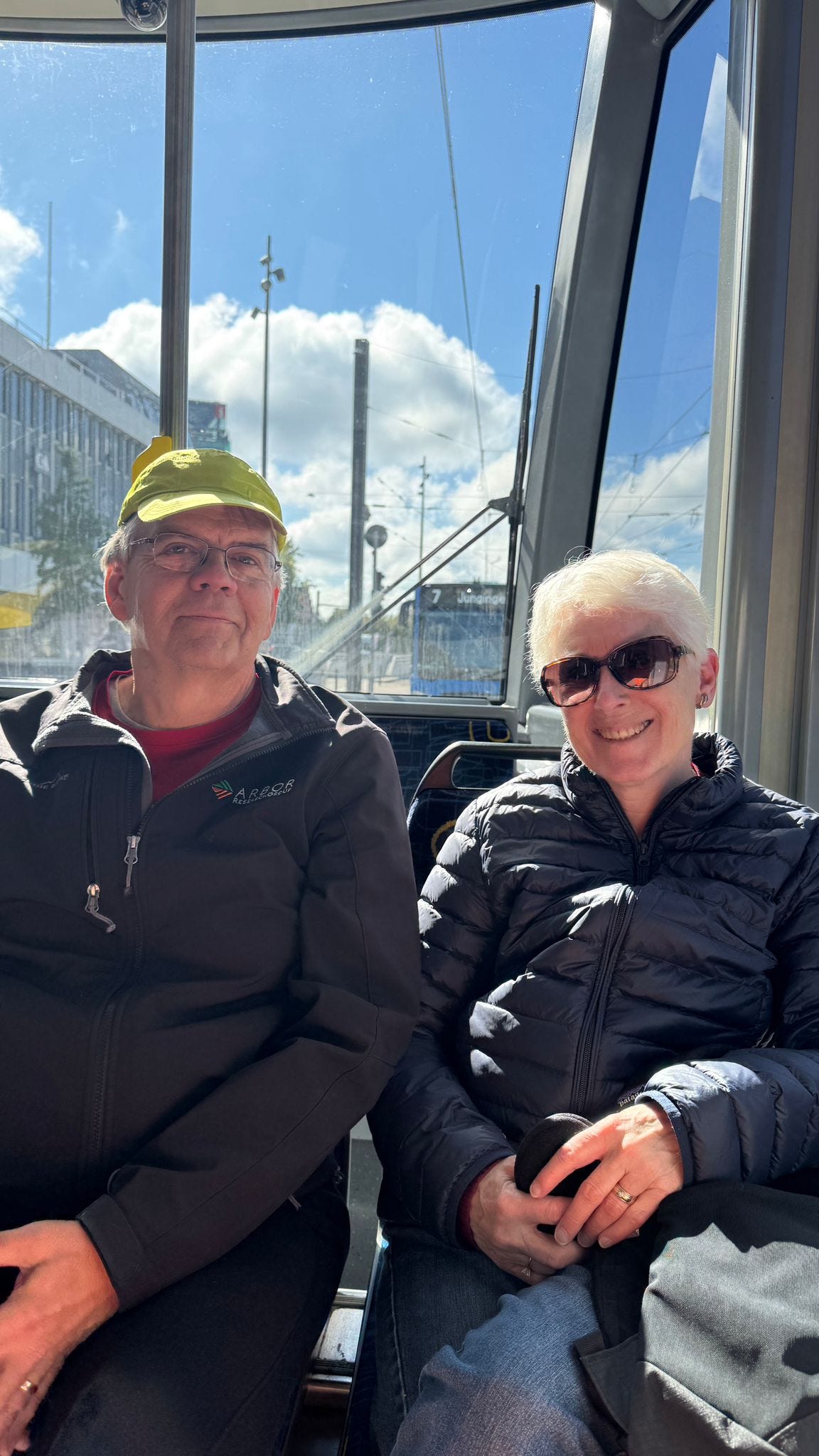Welcome back! (or welcome!)
“Finding Words in Hard Times” is a newsletter with stories and tools to help you be more comfortable as you help others in hard times.
I started teaching my “Pastoral Care” course this week and decided that giving you some listening and reading resources would help you in your helping.
So, this week, some tools from recent reading. After a note about permission.
+++
Getting better is harder than we imagine.
Often, when we are ill or injured, we struggle to think clearly. We aren't efficient We aren't creative. We aren't accurate. And we are frustrated with ourselves. "If I was only more motivated," we think. "If I was more competent." "If I wasn't so lazy."
We forget, or don't understand, that our injured or ill body is working hard to repair itself, to heal. That healing takes electricity, which then can't be used for the brain to think. It takes rest.
We aren't lazy or unmotivated or incompetent. We are embodied.
Loss, and the attendant grief can disrupt us as well. People who are gone, unfamiliar surroundings, changed responsibilities or relationships, constant information about potential crises. All of these disrupt our thinking.
When you hear someone (or yourself) say, "Why can't I think?" stop for a moment. Do an inventory of reasons other than incompetence, laziness, and brain tumors. Take a nap. Forgive yourself or others. Turn off the self-serving fear-mongers. You can give yourself and others permission to recover.
+++
On grieving and not being able to think
A few months back, I had a podcast episode about this idea that grief can make it hard to think. If you didn’t watch or listen, it’s worth going back.
Palliative care and dying.
In the last week, I’ve talked with families before death, and families after death. The conversations were about surprise and choices. As in, we need to keep doing everything we can, including chest compressions. We got the diagnosis a month ago, but now the cancer is already everywhere. This was so sudden. We’ve had a great four years.
In all our (mostly American) desire to do everything possible, we often don’t consider the inevitability of death. And what the process of dying might be like.
Kathryn Mannix is a palliative care physician in the UK. What’s palliative care? Listen to this conversation she had with Kate Bowler. She talks about what dying looks like, about what goals of care can be.
There were no surprises here, but there were words and ways to think which helped me in one of the conversations.
Podcast: Living with the end in mind
Responding to the deaths of public figures.
Article: Why Liam Payne's death is hitting one demographic particularly hard - ABC News
I’m of an age when the public figures of my youth are dying. But I’m realizing that the public figures of today’s “youth” (like you!) are more integrated into the waking lives of people. With all the ways of knowing everything public figures do (and all the speculations about them), the sudden death of a public figure can be hard and disruptive. The grief is actual grief. In this article, Lauren Breen, one of the key writers about grief literacy, talks about why these deaths are so hard for us.
“Such connections are called parasocial relationships, which are "characterised by investing a large amount of time and energy into a person even when they [the celebrity] don't know who we are," said Dr Breen.
"These relationships can feel very powerful and important and real, and in a lot of ways they play a central role in our daily lives," she said.”
It’s tempting to say, “why is this so hard? You never knew them!” But because they’ve unknowingly been part of pivotal moments in our lives, this is hard.
Public figures responding to death.
Here’s an article by Lauren about a public figure responding to death in, of all places, a conversation on Sesame Street. As a person who pays attention to grief, I’m aware of the number of public figures talking about their own grief and loss.
On one hand, this is wonderful. We’re moving from silence to conversation.
On the other hand, I have this caution: An individual’s story is their story. We are each experts, perhaps, on our own grief. But that doesn’t make us experts on all grief.
And when other people take a story and say, “Why can you be like ___, who had significant loss and overcame it”, they are ignoring all kinds of factors.
There are many (and more all the time) grief memoirs. There’s value to the writer in the process of writing. And often, we can be inspired by the stories of others. And, in the Sesame Street story, what’s clear is that a team of thoughtful people helped shape this conversation to be most helpful to the kids (and parents) watching.
May we all be thoughtful in applying stories to other people.
+++
Thanks for stopping by. And thanks for your support and encouragement for this work. I’ll be back next week.
Jon





